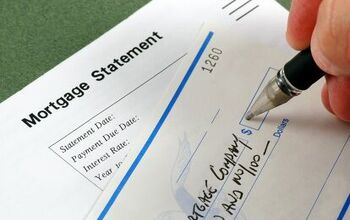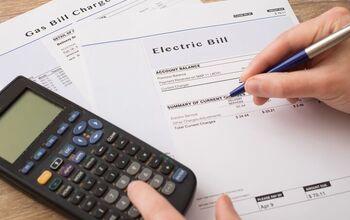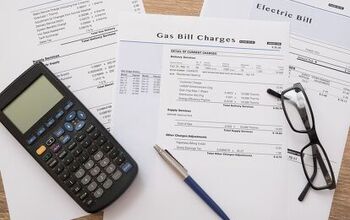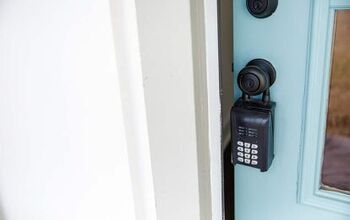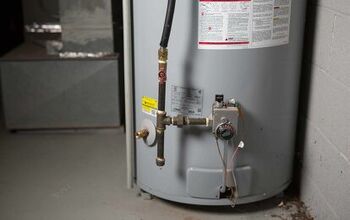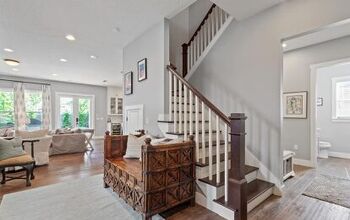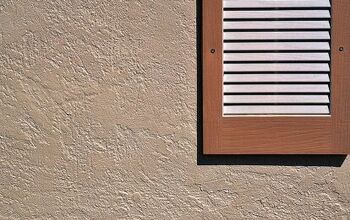My Landlord Is Spying On Me (Here's What You Can Do)

Having someone spy on you is not only creepy, but it also interferes with the quiet enjoyment of your home. Spying is an invasion of your privacy, and you do have rights, even if that person happens to be your landlord.
Document the incidents. Contact law enforcement, and speak with an attorney. Your landlord does not have the right to spy on you. It is an invasion of your privacy. Spying is considered stalking if it makes you feel uncomfortable, and this is illegal. It may also be considered harassment under the law.
Landlords do have rights to protect their investments, but they don’t have rights to invade your privacy. Having a landlord that spies on you prevents you from the quiet enjoyment of the rental property.
Do You Need to Hire Movers?
Get free, zero-commitment quotes from pro contractors near you.

What is Spying?
In the world of espionage, spying is defined as secretly gathering information and giving it to competitors or enemies. In the rest of the world, “spying” does not have to involve passing information onto a third party. Anyone who secretly collects information on you so they know everything that you do is considered spying. Even watching someone without them knowing is defined as spying.
Is Spying on Someone Illegal?
Spying on its own is not considered illegal, but anyone who invades your privacy is breaking the law. The situation is complicated when the person doing the spying is your landlord. Landlords do have certain rights, and it is a very fine line between exercising their rights and spying on their tenants.
Stalking vs. Spying
Unlike spying, the laws about stalking are very clear. Stalking is any willful and repeated act of harassing or following a person in such a way that makes any reasonable person to be afraid of injury or death. Stalking is also defined as engaging in conduct that is directed at a person without a legitimate purpose. The conduct seriously intimidates, alarms, and annoys the person.
Landlord Right of Entry and Tenant Right of Privacy
Under the law, there is a delicate balance between landlord rights of entry and tenant rights of privacy. Check the tenant rights in your city or county.
Landlord Right of Entry
Landlords do have the right to inspect their properties and enter under specific circumstances. With the exception of an emergency, such as a fire or flood, the landlord must give notice to the tenant. Typically, a landlord must notify the tenant at least 24 hours before entering.
Landlords have the right to enter the property to perform maintenance and make repairs. Landlords also have the right to show their properties to potential tenants and buyers.
Tenant Right to Privacy
Landlords cannot, under any circumstances, enter properties simply to check up on their tenants. If your landlord does this, have a discussion. If it continues, you have the right to break the lease and move. The basis for breaking the lease in these cases is known as a “constructive eviction.” In order words, the landlord’s behavior interfered with your ability to have quiet enjoyment of the property.
Other situations that are considered invasions of privacy by landlords are:
- Sharing your information with strangers – sharing information for business reasons is allowed
- Communicating with you or your co-workers at work, except for certain circumstances
- Preventing guests without cause
- Spying
- Evictions without going through the proper legal process
- Harassment of any form
Can My Landlord Spy on Me?
Your landlord cannot spy on you. No one, including your landlord, ahs the right to secretly collect information about you simply so they know everything that you do. Under the law, spying is considered based on two factors:
- The tenant’s expectation of privacy
- The intent of the person who is spying
Can My Landlord Have Neighbors Spy on Me?
Your landlord cannot have neighbors and other tenants spy on you. If a landlord pressures another tenant to spy on you, that tenant may have grounds to break the lease.
Can My Landlord Contact My Co-Workers?
Unless you use a co-worker as an emergency contact, your landlord has no legitimate reason to speak to your co-workers. Your landlord cannot contact your co-workers to discuss late payments or damages. Your landlord cannot speak with anyone at your place of employment simply for the purpose of gathering information about you.
Is a Background Check Considered Spying?
Background checks, credit checks, and even verification of employment are commonplace in the rental market. Your landlord has a right to run these checks as part of the approval process. Depending on where you live, the landlord may be required to obtain your consent to run the background check.
The law is a little less clear for landlords that run these checks when there is already a lease agreement in place. Depending on the circumstances, it may be considered spying. Your landlord needs to have a legitimate reason to run the background check. Without one, your landlord may be violating your rights as a tenant.
When Landlord Spying Turns into Snooping
Spying is typically an act that happens from afar, but what if your landlord starts snooping? This is even creepier. Snooping is defined as secretly attempting to gather information about someone’s private affairs. Snooping may involve talking to your friends, co-workers, and neighbors, and even going through your trash. If your landlord starts snooping, it’s time to move. The problem is much bigger than just an invasive landlord.
Can Landlords Look Through Your Stuff?
Landlords cannot look through your stuff. Even if the landlord is on the property for a legitimate reason, they cannot snoop. A landlord can move your belongings to perform repairs, but they cannot just simply go through your stuff.
Can Landlords Trespass on Their Own Properties?
Believe it or not, landlords can be charged with trespassing on their own properties. Under the law, ownership and possession are two different matters. The landlord owns the property, but you are in possession of the property.
A landlord is required to follow state laws with regard to giving notice to tenants. If they fail to follow those laws and enter a property illegally, they can be charged with trespassing. This includes not giving proper notice when it is required and entering the property for unauthorized purposes.
Spying Landlords and “Smart Home” Technologies
“Smart home” technologies make life so much simpler, but the devices also make you vulnerable to invasions of your privacy. Some of the most popular devices that can be used for spying are video doorbells, security cameras, key card readers, and even network gateways that are owned by your landlord.
The laws about collecting and using data are vague, at best. What is known is that there is great potential for anyone, including your landlord, to use these technologies for spying and snooping.
How to Find a Hidden Camera in Your Apartment
Finding a hidden camera in your apartment takes time. You need to look in just about every corner. Security cameras can be as small as 1/16” and hidden in ceiling fans, lightbulbs, and even door knobs. You can also find apps for your phone that help you locate hidden cameras by looking for glints of light off the lenses. If you have the budget, you can spend about $200 on a bug detector that will find cameras and listening devices.
What to Do If Your Landlord is Spying on You
If your landlord is spying on you, move. Even if you can’t prove it, your intuition is most likely correct. Something gives you the creeps, and you deserve to feel safe in your home. You deserve quiet enjoyment.
Can I Sue My Landlord for Spying on Me?
You may be able to sue your landlord for spying on you. Document everything, including every creepy feeling you have when you interact with the landlord. Include dates, times, and circumstances. Take note of when your items have been moved while you were not home. Install your own security cameras, and use them over your own WiFi connection – not the landlord’s WiFi. Speak with an attorney to understand your rights and how to file a case against your landlord.
Do You Need to Hire Movers?
Get free, zero-commitment quotes from pro contractors near you.

Related Questions
Can a landlord change the locks?
Your landlord cannot change the locks to a property that you are renting. This applies even if you are behind on rent and other fees. If a landlord locks you out of a rental property without going through the court system, you can sue the landlord.
Can a tenant change the locks on a rental property?
Each jurisdiction has laws about tenant rights and responsibilities. In general, a tenant can change the locks unless there is specific language in the lease that prohibits it.
Conclusion
The relationship between a landlord and tenant is a type of business arrangement. Each party has rights and responsibilities. Spying on you is a violation of your right to privacy and quiet enjoyment of your home. Landlords cannot snoop through your belongings, have neighbors spy on you, or monitor your activities.
If you feel that your landlord is spying on you, the best option is to move as soon as possible.

Jennifer L. Eggerton loves being hands-on, whether it's with a home DIY project, making repairs, re-decorating a room, or keeping life organized. She enjoys helping people by sharing her knowledge, insights, and experiences, as well as her lessons learned. In addition to her work as a writer, Jennifer is a Jeep® overlander, self-published author, and nature photographer who loves being outdoors.
More by Jennifer Eggerton











